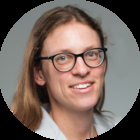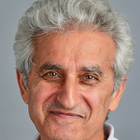The Current Column
The 2025 German Federal Election
Rebuilding Syria: A Win-Win for German-Trained Refugees and their Hosts
Abedtalas, Musallam / Tina ZintlThe Current Column (2025)
Bonn: German Institute of Development and Sustainability (IDOS), The Current Column of 6 February 2025
Bonn, 6 February 2025. With the fall of the Assad regime, Germany is facing complex challenges that require crucial decisions regarding the future of Syrian refugees and migration policies that look beyond the next legislative period. During the Syrian conflict, Germany has received around one million Syrian refugees, and with increasing political pressure and upcoming elections, the government finds itself at a crossroads. Populist voices call for a quick return of Syrian refugees, others point to the fact that Germany in many ways benefits from their workforce and skills. At the same time, such skills are now crucial for Syria’s reconstruction, and Germany needs to decide which assistance to offer for the war-torn country. Germany should strike the balance and grasp the opportunities to open up sustainable and mutually beneficial cooperation with Syria.
Germany’s political response after the fall of the Assad regime seemed somewhat hasty. Some decisions were made quickly, such as stopping the asylum process for newly arrived Syrian refugees. Some politicians stated that refugees should return after the reasons that led to their asylum have disappeared. Indeed, Syrians’ asylum to Germany was a direct result of the repressive Assad regime, but the increasingly populist and xenophobic debate risks squandering the opportunities available to deal with the refugee issue in a more deliberate and effective manner.
There is the costly humanitarian aspect of hosting refugees, and pressures on social cohesion within German society cannot be ignored. Yet, refugees’ situation has changed significantly over the past ten years. As most Syrian refugees arrived in 2015, they spent a decade to start their lives anew and acquired skills in various fields. They have become part of the German economy, filling gaps in many critical sectors. Therefore, Germany must adopt a balanced approach that takes into account the long-term benefits of refugee integration, but also builds on the fact that many Syrians want to return to their home country once the security and economic situation improves.
Germany can turn these dilemmas into an opportunity by playing a strategic role in rebuilding Syria and leveraging the skills of Syrian refugees. If conditions are sufficiently safe and stable, refugees will return and play a key role in Syria’s long-term recovery, providing crucial human capital for its reconstruction. The German government clearly understands the importance of supporting Syria, and has a clear vision for helping it in sectors such as health or education. However, so far this approach seems not to sufficiently take into account the potential long-term benefits of Germany’s previous efforts to host Syrian refugees and the considerable soft power emerging from this. Therefore, it is imperative that the German government considers a sustainable strategy for cooperation with Syria that takes into account demographic changes in Germany and benefits from the expertise gained by refugees in various fields.
One such strategy would be circular migration, a long-term approach that allows refugees to participate in rebuilding Syria without having to give up their new lives in Germany. Instead of forcing return, Germany could enable refugees to contribute to rebuilding their country through temporary visits or through partnerships with civil society organisations and even public institutions, once the Syrian government becomes more legitimate. This strategy requires deeper ties on several levels. Germany should consider re-opening its embassy soon – just as Syria’s new rulers should be prepared to take back nationals obliged to leave Germany.
Germany and Syria should intensify cooperation in various fields, such as education, health, technology, and energy – for both humanitarian and business reasons. For example, partnerships with Syrian hospitals should expand to include technical cooperation, the regular exchange of training and research expertise as well as the rehabilitation of areas that have been a significant source of refugee flows to Germany. Education will be crucial – like supporting schools following German curricula, so that highly skilled Syrians considering (temporary) return do not need to choose between rebuilding their country and uprooting their children, who have lived in Germany all their lives.
This way, Germany could benefit from new generations of Syrian workers, trained in German-supported educational and training environments, helping to compensate for the shortage of skilled workers in its domestic market. With its EU partners, Germany can act decisively and strategically by lifting further sanctions against Syria now and expanding the EU’s talent partnerships later. It is possible to support Syria’s recovery, strengthen social cohesion in Germany, and create new economic opportunities for all involved, if Germany adopts a balanced cooperative model – in a modern-day, hands-on version of Goethe’s West-Eastern Divan. In light of the current immigration debate in Germany, however, it will also be critical how the government communicates these benefits to a population increasingly open to dubious populist arguments.



